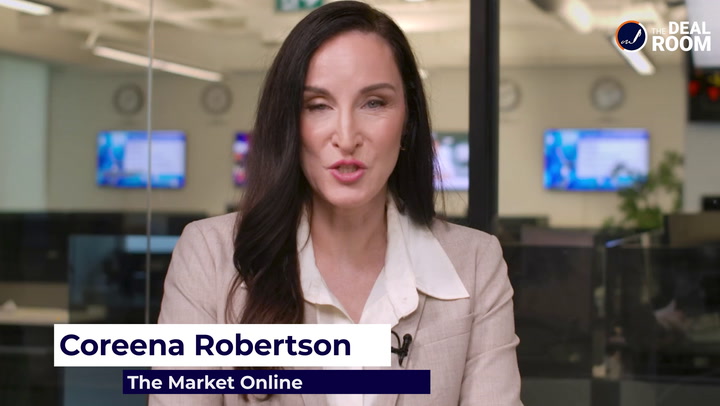The week in Canadian markets is ending with the TSX at a record high.
The index hit the record, its first since November 12, at yesterday’s close, as investors seek refuge in our country’s very particular industrial makeup.
Roughly a third of the TSX is in financials, while 15 per cent is in energy and 12 per cent is allocated to materials like gold and timber.
Financial stocks are advancing due to rising interest rates, which allow banks to charge more for loans and increase revenue.
Energy stocks have been benefitting from a limited oil supply due to Russian sanctions, as well as the world emerging from COVID lockdowns and beginning to travel again. Brent crude is up 56 per cent over the past year, while West Texas Intermediate is up by 59 per cent.
Materials companies are profiting from inflation as the prices of their products rise with the rest of goods and services. Gold, a mainstay for Canadian-listed miners, is up by almost 50 per cent over the past three years, while lithium, an essential component in EV batteries, is up 485 per cent over the past year.
This results in the TSX being up 15 per cent since last March, compared to 9 per cent for the U.S., -4 per cent for Developed International Markets and -15 per cent for Emerging Markets.
Investors, to nobody’s surprise, are chasing Canadian returns hoping the windfall continues, which brings the notion of home country bias into the fray.
Home country bias refers to the global phenomenon of over-allocating one’s portfolio to one’s country of residence. This occurs due to familiarity and accessibility, as well as a lack of education about proper diversification.
According to Schwab, U.S. investors have on average 75 per cent in their home country.
According to Vanguard, Canadians are closer to 60 per cent, even though Canada represents only 3 per cent of the global stock market to the U.S.’s 58 per cent.
The note to investors here is one of caution: while the TSX’s returns are currently some of the best in the world, the inevitable end to the conflict in Ukraine and the normalization of global supply chains mean the parade will not last forever.
This is why it’s important to strike a balance in your portfolio’s exposure to other countries to ensure that temporary crises do not derail your financial goals.
Consider the plight of Russian investors who, again according to Schwab, have 95 per cent of their portfolios invested in their own country. The MOEX index, which tracks the 50 largest and most liquid Russian companies, was down 45 per cent before Moscow closed its stock exchange due to backlash from the invasion of Ukraine. It has remained closed since February 25. Many MOEX stocks continue to trade in London and have since dropped over 90 per cent.
Add to that the ruble’s 50-per-cent loss in value to the U.S. dollar since the beginning of the year, and the situation for Russian investors becomes a prime example of how excess risk can turn one’s financial life upside down.
Rather than hitching your hard-earned dollars to the economic outcomes of a single country, exposure to the full breadth of public markets and their leading industries is a more sustainable starting point.
A common allocation in Canadian model portfolios divides roughly 40 per cent to the U.S., 30 per cent to Canada, 20 per cent to Developed International Markets and 10 per cent to Emerging Markets.
Taxes, fees and liquidity justify a slight home country bias, modifiable depending on your goals, time horizon and ability to withstand bear markets when they appear.
What does your allocation look like once you parcel it out country by country? Are you overweight or underweight certain industries that require adjusting to balance out their responsibility for your returns? Your answers will play an incredibly important role in how smooth and fruitful your time in the markets turns out to be.
This week, our readers have been analyzing firms with predominantly U.S. and Canadian exposure, as well as an energy company with operations in Turkey and Bulgaria. Let’s take a closer look.
good natured Products (TSXV:GDNP) introduces GoodGuard packaging innovation
good natured Products has filed for U.S. patent protection of its novel tamper-evident design, GoodGuard.
The company is releasing the renewable, plant-based packaging as grocery and restaurant delivery and take-out industries see increasing demand.
CEO Paul Antoniadis sat down with Shoran Devi to discuss the new product.
good natured Products is up by 1.69 per cent over the past week trading at $0.60 per share as of 10:27 am EST.
Clean Air Metals (TSXV:AIR) announces executive appointments and corporate updates
Clean Air Metals has shared new hiring, ESG and exploration updates.
The company appointed a new VP Exploration and Director of Sustainability, Permitting and Community Relations as it searches for a new COO.
It has also released an ESG report and detailed plans on drilling expansion at its Thunder Bay North Project.
It will soon add a third drill to the project in search of previously identified high-grade massive sulphides.
CEO and Director Abraham Drost joined Shoran Devi to discuss the news.
Clean Air Metals (AIR) is up by 1.89 per cent over the past week trading at $0.27 per share as of 10:59 am EST.
Northstar Gold (CSE:NSG) announces final results from the Phase IIB drilling exploration program at the Miller Gold Property
Northstar Gold has announced final results from the last 11 of 14 holes from its 2,495 m drill program on the Miller Gold Property.
CEO Brian Fowler sat down with Caroline Egan to discuss the results.
Northstar Gold (NSG) is up by 6.06 per cent over the past week trading at $0.18 per share as of 11:00 am EST.
Silver Bullet Mines (TSXV:SBMI) to begin mining at its Washington Mine in Idaho
The targeted section of the mine was last explored in the 1980s. A bulk sample from the period graded 44 oz./t silver and 10 g/t gold.
The company will fund the program with over C$1.5M in capital raised with another tranche slated to close next week.
Director and VP Capital Markets Peter Clausi spoke with Shoran Devi about the news.
Silver Bullet Mines (SBMI) is down by 1.05 per cent over the past week trading at $0.47 per share as of 11:00 am EST.
Trillion Energy (CSE:TCF) announces private placement
Trillion Energy International (TCF) has announced a non-brokered private placement for gross proceeds of up to $10M.
It will use the funds to purchase long lead well drilling consumable items and to pay the security deposit for the drilling rig.
It intends to break ground this July.
CEO Art Halleran sat down with Dave Jackson to discuss the financing.
Trillion Energy (TCF) is down by 12.5 per cent over the past week trading at $0.24 per share as of 10:44 am EST.
Join us next Friday afternoon for the week’s top trending stories on The Market Herald Canada.






